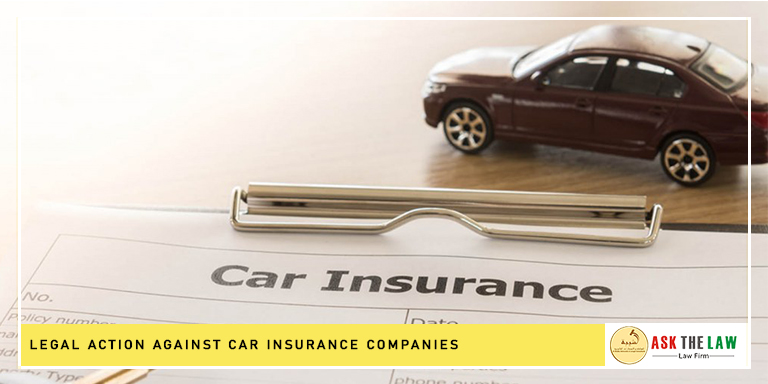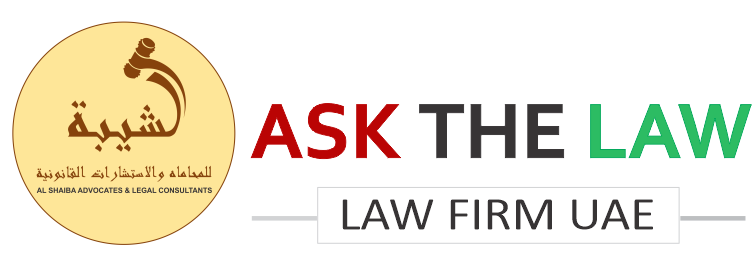
Legal Action against Car Insurance Companies in UAE
Buying a car is a big investment for anybody. On top of that, getting car insurance is also imperative to save you from huge financial losses in the future. If you are involved in an accident, you will be offered financial protection, known as insurance, a premium you pay when you buy the policy. To obtain the insurance is also mandatory in United Arab Emirates. Car insurance has to be bought by individuals to protect their cars against unexpected road traffic accidents.
There are incidents when the insurance company denies the compensation or can deny the compensation or might also delay the payment. First they have to investigate the car accident claim, and then the compensation has to be paid, based on the type of insurance policy which are full insurance or third party. Therefore, decisions are pending in those companies. It adds a financial burden on an individual as they have to get their car fixed sooner, the better. Let’s discuss further.
Penalties for Delayed Payments by Car Insurance Companies
Insurance companies cannot delay the payment anymore. The UAE law regarding insurance policies has asked insurance companies to compensate policyholders within a specific timeframe rather than making them wait longer. However, the law ensures fair treatment and protects the rights of the policyholders. To uphold the insurance claim for the individuals, the Insurance Authority Board has introduced several solutions to expedite the cases by providing a settlement out of court.
UAE Insurance Law
The insurance law of the UAE is well explained in Article (3) Classes of Insurance. Insurance is defined as compensation promised to be delivered to the individual by the insurer through the premium payment they have made to the insurance company. Individuals buy insurance for properties that can have potential unintentional damages through accidents. Different types of insurance, the citizens can buy. One of the common insurance policies is car insurance.
Article (4) Classes of Insurance, defines car insurance as property and liability insurance. Therefore, the claims and compensation for car insurance are overseen to support the policyholders in times of accidents. In a car accident, the insurance company compensates the policyholder. However, the contractual agreement between the insurer and the policyholder defines the timeframe for processing the claim and making settlements promptly.
Responsibilities of the UAE Insurance Companies
The UAE insurance law has defined the obligations of the insurer and the insurance company, especially regarding accident claims and compensation. Buying insurance for your car is compulsory in the UAE. However, the Central Bank of the UAE monitors the insurance companies to ensure they comply with the UAE’s insurance laws. Insurance law defines the responsibilities of the insurance company that they have to fulfil to cooperate with the Central Bank separately:
Article 27: All licensed vehicles should pay the premiums to the insurance companies as set by the Central Bank, based on the potential risk a car can have. It means that an expensive car will have a higher premium.
Article 28: Insurance companies must maintain a data transparency policy with the Central Bank and ensure excellent audit reports for regulatory activity.
Article 29: The insurance company’s yearly financial statements are shared with the Central Bank, ensuring transparency and accountability. Therefore, if the company faces challenges paying the claim to the policyholder, it shall disclose the situation to the Central Bank for a better solution.
The UAE insurance companies are obligated to follow UAE insurance law. However, insurance companies’ compliance with UAE laws gives an idea of the UAE government’s fair treatment of everyone and protection of the interests of the policyholders.
Insurance Authority Board in the UAE
To enhance the rights of the policyholders, the Insurance Authority introduced Board Decision No. 33/2019 to resolve disputes related to insurance claims. The Board is responsible for providing alternate solutions for conflict resolution related to delayed payments and compensation. However, the alternate dispute resolution mechanisms will ensure cost-effective and quick decision-making rather than choosing litigation for these issues.
To safeguard the interests of the policyholders, Article 4 of the Board Decision permits the committees to pursue all types of insurance claims without capping the financial value of those claims. The individuals can make insurance claims unhesitatingly without involving the court for compensation and hold the insurance companies accountable for making any payment delays.
Legal Actions against Late Payments by the UAE Insurance Company
If you were involved in an accident and made your claim at the right time, the insurance company must take only a short time to provide the compensation. However, if it takes too long to decide on your payment, you can begin with the legal procedure. As a policyholder, you can get financial compensation within a defined time frame per the UAE Insurance Law. The following steps can expedite your process of compensation or you can also consult our lawyers in Dubai. Let’s explore these steps:
Filing a Complaint
Without any hesitation, you can file your complaint with the Central Bank. It has the authority to oversee and monitor the activities of the insurance companies within the UAE. Article 9 allows the policyholders to complain against their insurance company to the Central Bank. After receiving your complaint through Central Bank, the investigation will begin against the insurance company. If it is found that the insurance company has not followed the insurance law or did not meet the requirements to open an insurance company, the penalties could be severe. Corrective measures and the disciplinary actions taken against the insurer will be suggested.
Talk to the Dispute Resolution Committee
Policyholders can engage the Board Decision Committee to resolve their disputes regarding insurance claims. These committees make quick decisions to expedite insurance claims before any other dispute arises. However, it helps the individual get a robust compensation solution and avoid the court’s intervention, which may take a long time to get the monetary compensation.
Escalate Your Case to the Grievance Committee
You can take your case to the grievance committee if your initial complaint is unresolved. The Central Bank monitors this committee and can impose penalties on insurers who must still fulfil their responsibilities per UAE insurance law. In most cases, the insurer’s license to run an insurance company can be sanctioned, and they also have to pay heavy financial penalties.
Litigation for Compensation
The policyholder can only drag the case into court if something works out of court settlement. Often, the insurer will take time to decide and might delay the payment on purpose. The UAE laws are strict and should be implemented to safeguard the rights of individuals. Therefore, the policyholder can consider taking their case to the court. It has been observed that when vehicle claims are filed in court, the UAE law mostly favors the policyholder and ensures they are not financially burdened.
Penalties to Violate the UAE Insurance Law
Insurance companies that do not fulfil their responsibilities towards policyholders will face severe consequences. The insurance company authorities can be penalized in different ways since they are held accountable for ensuring the rights of the policyholders. Failing to comply with the insurance law will lead them to pay huge fines, and their license may be suspended or cancelled.
How Do Penalties Work for UAE Laws
The penalties for violating different laws have helped the UAE government improve the country’s safety and protect the rights of its citizens. Penalizing delaying insurance claims greatly impacts insurance companies, as they can no longer deny compensation. However, they have to decide quickly about compensation for the policyholders. The UAE has worked hard on its legal structure to ensure everyone gets fair treatment regardless of nationality.


